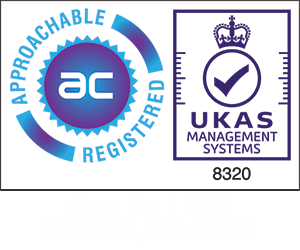Cookie Policy
What is a cookie?
A cookie is a small amount of data, which often includes a unique identifier that is sent to your computer or mobile phone (referred to here as a “device”) browser from a website’s computer and is stored on your device’s hard drive. Each website can send its own cookie to your browser if your browser’s preferences allow it, but (to protect your privacy) your browser only permits a website to access the cookies it has already sent to you, not the cookies sent to you by other websites. Many websites do this whenever a user visits in order to track online traffic flows.
On the nlightn-IT websites, cookies record information about your browser which allows us to track more advanced web browsing analytics. Users have the opportunity to set their device to accept all cookies, to notify them when a cookie is issued, or not to receive cookies at any time. The last of these means that certain personalised features cannot then be provided to that user and accordingly they may not be able to take full advantage of all of the website’s features. Each browser is different, so check the “Help” menu of your browser to learn how to change your cookie preferences.
Over the course of any visit to a nlightn-IT website the pages you see, and with a cookie, are downloaded to your device. Many websites do this, because cookies enable website publishers to do useful things like find out whether the device (and probably its user) has visited the website before. This is done on a repeat visit by investigating the existence of, and finding, the cookie left there on the last visit.
Types of cookie
First party cookies
First party cookies are set by the website, you are visiting and they can only be read by that site.
Third party cookies
Third party cookies are set by a different organisation to the owner of the website you are visiting. For example, the website might use a third party analytics company who will set their own cookie to perform this service. The website you are visiting may also contain content embedded from, for example YouTube or Flickr, and these sites may set their own cookies.
Session cookies
Session Cookies are stored only temporarily during a browsing session and are deleted from the user’s device when the browser is closed.
Persistent cookies
This type of cookie is saved on your computer for a fixed period (usually a year or longer) and is not deleted when the browser is closed. Persistent cookies are used where we need to know who you are for more than one browsing session. For example, we use this type of cookie to store your preferences, so that they are remembered for the next visit.
Flash cookies
Many websites use Adobe Flash Player to deliver video and game content to their users. Adobe utilise their own cookies, which are not manageable through your browser settings but are used by the Flash Player for similar purposes, such as storing preferences or tracking users.
Flash Cookies work in a different way to web browser cookies (the cookie types listed above are all set via your browser); rather than having individual cookies for particular jobs, a website is restricted to storing all data in one cookie. You can control how much data can be stored in that cookie but you cannot choose what type of information is allowed to be stored.
nlightn-IT Ltd does not use any Local Shared Objects – or Flash Cookies as they are commonly known. How to disable Flash Cookies: The Adobe website provides comprehensive information on how to delete or disable Flash cookies either for a specific domain like www.nlightn-IT.com or for all websites – see http://www.adobe.com/products/flashplayer/security for details.
How does nlightn-IT use cookies?
Information supplied by cookies can help us to analyse the profile of our visitors and help us to provide you with a better user experience. For example, if you’re contacting us via the online contact form we can see how you traversed the website and can see which pages you previously looked at before making contact.
A list of the main cookies that the nlightn-IT websites set (and what each is used for) together with ways to minimise the number of cookies you receive can be found below.
| Cookie Name | Source | Purpose |
| utma | Google Analytics | Keeps track of the number of times a visitor has been to the site, when their first visit was and when their last visit occurred. |
| utmb | Google Analytics | Logs the exact moment in time when a visitor enters the site. |
| utmc | Google Analytics | Logs the exact moment in time when a visitor leaves the site |
| utmz | Google Analytics | Tracks whom and to what source/medium/keyword to assign the credit for a goal conversion or an ecommerce transaction |
How to control and delete cookies?
nlightn-IT does not use cookies to collect personally identifiable information about you. However, if you wish to restrict or block the cookies which are set by the nlightn-IT websites, or indeed any other website, you can do this through your browser settings. The Help function within your browser should tell you how.
Alternatively, you may wish to visit http://www.aboutcookies.org which contains comprehensive information on how to do this on a wide variety of browsers. You will also find details on how to delete cookies from your computer as well as more general information about cookies. For information on how to do this on the browser of your mobile phone you will need to refer to your handset manual.
Please be aware that restricting cookies may impact on the functionality of the nlightn-IT website.
Web browser cookies
If you don’t want to receive cookies, you can modify your browser so that it notifies you when cookies are sent to it or you can refuse cookies altogether. You can also delete cookies that have already been set.
If you wish to restrict or block web browser cookies which are set on your device then you can do this through your browser settings; the Help function within your browser should tell you how. Alternatively, you may wish to visit www.aboutcookies.org, which contains comprehensive information on how to do this on a wide variety of desktop browsers.
Adobe Flash Player Cookies
The Adobe Flash Player, used to provide services such as iPlayer or web-based games, is also capable of storing information on your device. However, these cookies cannot be controlled through your web browser. Some web browser manufacturers are developing solutions to allow you to control these through your browser, but at the present time, if you wish to restrict or block Flash Cookies, then you must do this on the Adobe website.



